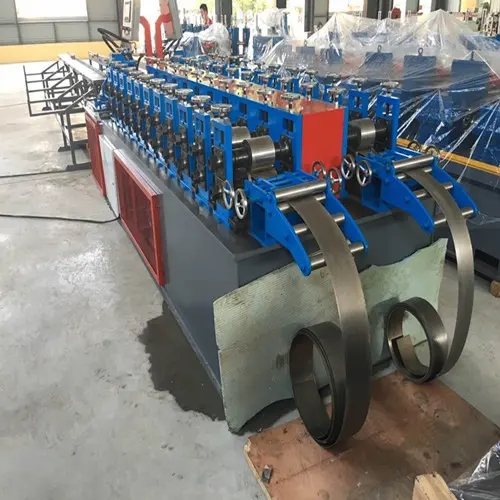
The Thread Form Machine Industries An Overview
In the vast landscape of manufacturing and industrial processes, thread form machine industries play a crucial role in shaping the fabric of modern engineering and production. These specialized industries focus on the creation and manipulation of threaded components, which are essential in a wide range of applications, from construction and automotive to electronics and aerospace. This article explores the significance, technological advancements, and future trends within the thread form machine industry.
Understanding Thread Forming
At its core, thread forming refers to the process of creating threads on a workpiece, often through methods such as rolling, cutting, or molding. These threads are critical for fastening and securing components, ensuring that machinery and structures operate safely and efficiently. With a wide array of thread types—such as metric, UNC (Unified National Coarse), and UNF (Unified National Fine)—the need for precision and reliability in threading processes is paramount.
The thread form machine industry encompasses a variety of machinery designed specifically for producing these threaded components. This includes thread rolling machines, CNC lathes, and tapping machines. Each of these has unique capabilities and applications, allowing manufacturers to produce everything from simple screws to complex bolt designs.
Technological Advancements
The thread form machine industry has seen significant innovations over the past few decades. Automation and computerized processes are at the forefront of these advancements, with CNC (Computer Numerical Control) technology revolutionizing the way threaded components are manufactured. CNC machines allow for high precision, repeatability, and efficiency, reducing both the time and cost of production.
Furthermore, the integration of Industry 4.0 principles—characterized by the Internet of Things (IoT), big data analytics, and smart manufacturing—has transformed traditional thread forming operations. Manufacturers can now utilize real-time data to monitor processes, predict maintenance needs, and optimize production schedules, leading to enhanced productivity and reduced waste.
The development of advanced materials has also impacted the thread forming industry. With the advent of high-strength alloys and composite materials, manufacturers must adapt their thread forming techniques to account for varying material properties, ensuring robust and reliable threads.

Applications and Industries
Threaded components are ubiquitous in modern society, found in countless applications across many sectors. In the automotive industry, for example, threaded fasteners hold together critical components, ensuring vehicle safety and performance. In construction, bolts and anchors created through thread forming are essential for structural integrity in buildings and infrastructures.
The aerospace sector relies heavily on thread-formed components for everything from engines to landing gear. Given the rigorous safety standards and performance requirements in this field, the precision of threaded parts is crucial, making the expertise of thread form machine industries indispensable.
In the electronics industry, threaded fasteners are often used in assembly processes for devices such as computers, smartphones, and appliances. The demand for miniaturized, precision-threaded components continues to rise as technology advances, spurring innovation within thread form manufacturing techniques.
Future Trends
Looking ahead, several trends are likely to shape the future of thread form machine industries. The growing emphasis on sustainability and environmentally friendly manufacturing practices is prompting companies to seek out eco-friendly materials and energy-efficient machinery. Additionally, the rise of additive manufacturing, or 3D printing, presents both challenges and opportunities for the thread form machine industry, as new methods of creating threaded components are explored.
Automation will continue to play a pivotal role, with robotics enhancing production capabilities and reducing labor costs. As the demand for customization increases, manufacturers will need to adapt to smaller batch sizes and more varied product specifications, requiring flexibility in their thread forming processes.
Conclusion
The thread form machine industry is a vital component of modern manufacturing, underpinning many sectors that are critical to daily life. As technology continues to evolve, this industry will likely experience significant changes that will enhance efficiency, precision, and sustainability. By embracing innovation and adapting to market trends, thread form machine industries will remain at the forefront of manufacturing excellence, continually contributing to the advancements in engineering and technology that shape our world.